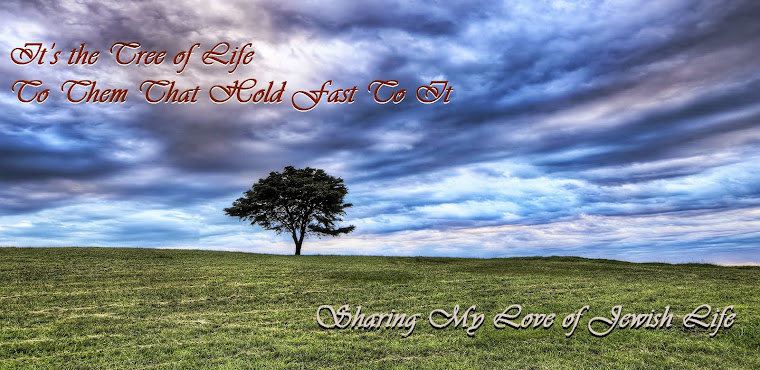First and foremost, a hearty yasher koach to Caryn and Ruthie for once again arranging this group.
While I must admit that I have not been able to read all of the divrei Torahs, the ones that I have read have been inspiring, moving and strengthening in that it helps to “hear” people touch upon so many concepts that I see in my own life. I would like to also apologize to the group for the days I missed saying tehillim. Hodu L’Hashem, we were blessed with a little boy on 21 Av (which was 6 August) so the first few weeks of Elul were kind of a blur.
Our Rabbis have taught: On entering the barn to measure the newly harvested grain one shall recite the benediction, ‘May it be Your will O Lord, our God, that You may send blessing upon the work of our hands.’ Once he has begun to measure, he says, ‘Blessed be He who sends blessing into this heap.’ If, however, he first measured the grain and then recited the benediction, then his prayer is in vain, because blessing is not to be found in anything that has been already weighed or measured or numbered, but only in a thing hidden from sight” (Talmud Taanit 8b).
More succinctly put, as noted on the same Talmudic page, “In the school of Rabbi Ishmael it was taught: Blessing is only possible in things not under the direct control of the eye, as it is said, ‘The
Lord will command the blessing with you in your barns’” (Deuteronomy 28:8).
We are in the midst of the time of year when this message is particularly appropriate because we are all focussed on analyzing the year that has passed and contemplating what we want for the future. Living in a world where there is so much immediate gratification and so much technology that allows us to discover the unknowable, we often approach situations with a desire, almost a need, to know the answers to all of our questions and all of the undetermined aspects of our life.
During the course of my pregnancy, I was in a position where my doctor was placing a lot of pressure on me to go for extra testing to make sure everything was as desired (given my age).
A natural worrier, this pressure caused a great deal of anxiety for me until I thought about this concept. Now was the time to step away from my need for control and to remember that HaShem runs the world. I told the doctor that I was going to go with the faith in God plan. Having refocused my brain on emunah (rather than worrying), it was time to transform that into action.
Davening, however, has never been easy for me. I have a hard time concentrating, prioritizing my time and most importantly, as anyone who knows me will agree, asking for something.
Once upon a time, I davened Shacharit and Mincha every day. The year I was in aveilus for my father, I even went to a mincha minyan most days. Baruch Hashem, life got busy, and I found myself missing mincha more often than not. Then life got busier still and my davening time was reduced to birchat hashacher...often mumbled while serving breakfast. Like many people, my davening increased in times of difficulty, but that often faded.
My davening actually began to increase a little over a year ago, not because I felt that I was connecting to Hashem, but because I thought it was important to set an example for my children. Now, however, I was davening for me.
I would love to say that my davening was transformative...the challenges I faced before are still there. When I go to daven, however, I try to remember that HaShem wants our requests and that He gives us a multitude of opportunities to turn to Him.
During the Aseres Ymai Teshuva, we change our davening - which is an excellent opportunity to work on concentration! - and I think that the alteration from haKel Hakadosh to HaMelech HaKadosh is a powerful reminder of our opportunity to make requests. HaKel is the idea of a deity, which is far less approachable than HaMelech, the King.
I am going to close now with a bracha that we should all only have simple things to daven for and that each of you should be blessed with bracha, parnassa, simcha and shalom.
(I apologize, I usually write more cohesively, but Asher seems to know every time I sit down to concentrate.) I will be giving tzedakah to Midreshet Rachel V'Chaya.
